Happy Tuesday! As though the news wasn’t already hectic, TMD has been made aware of another crucial election to follow: the Somerville Massachusetts race for “cat mayor” of the local bike path. Incumbent cat Berry has an uphill battle to hold his seat, facing off against more than 50 candidates, such as Orange Cat, Tiny, Cartwheel, and Rosie, along with parrot Timber, the guinea pig Ms. Potato, the tortoise Nagi, and Large Snake, the large snake. We look forward to updating readers when results roll in on September 5.
Quick Hits: Today’s Top Stories
- Ukrainian President Volodymyr Zelensky met President Donald Trump at the White House on Monday to discuss prospective Russia-Ukraine peace deal terms following the U.S.-Russia summit in Alaska on Friday. Trump prioritized securing a long-term peace deal rather than a temporary ceasefire and told Zelensky that any such deal would include currently unspecified U.S. security guarantees. Six European leaders and NATO Secretary General Mark Rutte joined Zelensky. After the meeting, Zelensky thanked Trump in an X post, saying the conversation was “long and detailed” and emphasized that security guarantees are “a starting point towards ending the war.” Later Monday night, Trump wrote on Truth Social that he called Vladimir Putin to arrange a meeting between the Russian president and Zelensky, and added that there would be a trilateral meeting in the future as well.
- Hours before the White House meeting, Russia launched ballistic missiles and military drones into Ukraine in an overnight aerial attack that killed 14 civilians, including at least three children, and injured more than a dozen others. “Russians are deliberately killing people, particularly children,” Zelensky wrote on X, noting that Russia targets residential buildings and other civilian sites. The attacks killed seven people in the northeast Ukrainian city of Kharkiv, including an entire family with two children.
- Hamas terrorists informed Egyptian and Qatari mediators on Monday that they have agreed to a new 60-day ceasefire deal. The deal reportedly would have Hamas release 10 surviving Israeli hostages—about half of the living hostages held in Gaza—and hand over the bodies of 18 deceased hostages in exchange for Israel releasing 200 Palestinian prisoners—most currently serving life sentences, and all to at least 15 years—in addition to all female and minor Palestinian prisoners. “We can see clearly that Hamas is under immense pressure,” Israeli Prime Minister Benjamin Netanyahu, who earlier this month approved a military takeover of Gaza City, responded. He did not clarify whether the Israeli government plans to continue its Gaza City operation or whether he would approve the ceasefire proposal.
- Trump posted on Truth Social Monday that he would lead an effort “to get rid of” mail-in ballots and electronic voting machines ahead of the 2026 midterm congressional elections. He claimed without evidence, that such voting methods are prone to being “Highly ‘Inaccurate.’” Trump said he would issue an executive order to “help bring HONESTY to the 2026 Midterm Elections,” though he did not specify the presidential authority he plans to exert. Per the U.S. Constitution, the power to set “The Times, Places and Manner of holding Elections” lies with each state, and only Congress has the power to override a state’s law on voting. Also on Monday, news outlet Newsmax agreed to pay $67 million to settle a lawsuit from Dominion Voting Systems for claims the network aired about the voting machines company after Trump lost the 2020 election.
- Democratic Texas state representatives who left the state August 3— in an effort to stall passage of a congressional redistricting proposal favorable to Republicans—returned to the state Capitol on Monday, effectively ending the walkout. One day after congressional Democrats left the state, Texas Gov. Greg Abbott issued arrest warrants to secure their return. While Texas Democrats returned voluntarily, Texas House Speaker Dustin Burrows announced rules requiring that all members subject to arrest warrants may not leave the House floor unless they sign a statement pledging not to leave Texas before the House reconvenes on Wednesday, and consenting to surveillance from Texas Department of Public Safety officers whenever they leave the House floor. Texas State Rep. Nicole Collier, a Democrat, refused to sign the agreement, instead opting to remain on the House floor until Wednesday. Read more about the redistricting fight in last Thursday’s TMD.
- House Oversight Committee Chair James Comer, a Kentucky Republican, announced on Monday that the Justice Department (DOJ) was working with the committee to hand over files from the investigation of deceased sex offender Jeffrey Epstein. “I expect to receive the documents very, very soon,” Comer said, specifying that the DOJ informed him that the agency would begin the process on Friday. The committee issued a subpoena to the DOJ on August 5 for access to the records, setting a Tuesday deadline for the agency to comply. Comer said in a Monday statement that the DOJ was complying, while also acknowledging that “it will take the Department time” to hand over the full set of records and complete due diligence to “ensure the identification of victims and any child sexual abuse material are redacted.”
Safety First
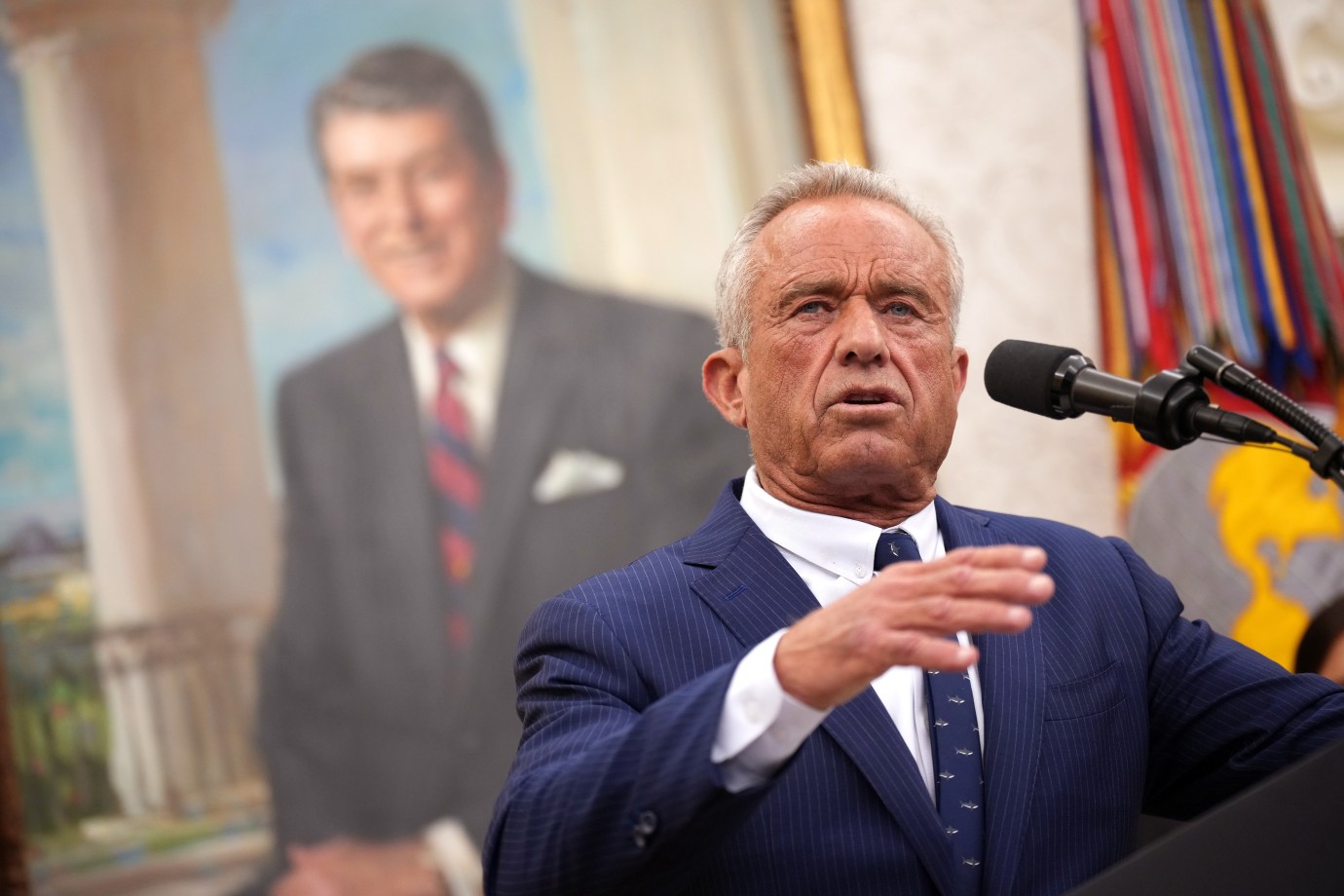
In case you hadn’t noticed, Robert F. Kennedy Jr. isn’t so sure about vaccines. Kennedy has claimed “there’s no vaccine that is safe and effective,” compared U.S. vaccine mandates to “Hitler’s Germany,” and famously authored a nearly 5,000-word article for Rolling Stone claiming that there was a large-scale cover-up of the link between vaccines and autism (it was later retracted). Then again, he has said all this while claiming he’s not against vaccines per se—he just wants them to be safer. “I am pro-vaccine,” he wrote in the introduction to his 2015 book Thimerosal: Let the Science Speak, which advocated for the removal of a preservative used in many flu vaccines.
“News reports have claimed that I am anti-vaccine or anti-industry,” he said during his January confirmation hearing to become secretary of the Department of Health and Human Services. “I am neither. I am pro-safety.”
Despite concerns from some members—notably, Republican Sen. Bill Cassidy of Louisiana—the Senate ultimately confirmed him as HHS secretary on February 13. In the six months since, he has confirmed almost every fear held by his skeptics, with his latest moves being the restoration of the Task Force on Safer Childhood Vaccines, announced Thursday, and the cancellation of hundreds of millions of dollars in mRNA vaccine research funding earlier this month. Whereas the first Trump administration can be largely credited with the mRNA breakthrough, thanks to its $12 billion private-public partnership known as Operation Warp Speed, RFK’s HHS is reversing course.
Paul Offit, the head of the Vaccine Education Center at the Children’s Hospital of Pennsylvania and the co-inventor of the rotavirus vaccine, told TMD that he thinks RFK’s changes have nothing to do with safety or improving vaccine quality, but are “solely for the purpose of making vaccines more feared, less available, and more expensive.”
From the jump, Kennedy’s leadership had a distinctly vaccine-skeptical flavor. When measles cases exploded in West Texas earlier this year, leading to 100 hospitalizations and the deaths of two children, Kennedy downplayed the outbreak’s severity, arguing that “healthy diets,” Vitamin A supplements, and cod liver oil were effective measures against the disease. (Kennedy did eventually write in a Fox News op-ed that vaccines prevented measles and that “the decision to vaccinate is a personal one.”)
In May, Kennedy announced the U.S. Centers for Disease Control and Prevention (CDC) would no longer recommend the COVID-19 vaccine for healthy pregnant women and children. In June, Kennedy removed all 17 members of the CDC’s Advisory Committee on Immunization Practices, replacing them with a smaller, hand-picked group that includes two prominent vaccine skeptics: Dr. Robert Malone, who has cast doubt on the safety of mRNA vaccines, and Vicky Pebsworth, who leads the National Vaccine Information Center, a group that argues there is a link between vaccines and autism despite all the evidence to the contrary. Just weeks after the committee’s reshuffling, it voted to no longer recommend flu vaccines that contain the preservative thimerosal. The vote followed a presentation by Lyn Redwood, a longtime Kennedy confidante and the former leader of the anti-vaccine group Children’s Health Defense, whom Kennedy brought on as a special government employee. One panel member, Dr. Cody Meissner, who teaches at Dartmouth University’s Geisel School of Medicine, was perplexed. “I’m not quite sure how to respond to this presentation,” he said. “There is no scientific evidence that thimerosal has caused a problem.”
Last week, HHS made its latest institutional shift toward vaccine skepticism, announcing on Thursday that the Task Force on Safer Childhood Vaccines, which had been dormant since 1998, would be revived. The 1986 National Childhood Vaccine Injury Act created the task force as part of the law’s mandate to produce a report on the state of childhood vaccine safety. However, it was wound down in 1998, with its final report noting: “Concerns about vaccine safety become increasingly prominent when effective use of vaccines in a population reduces the incidence of the target diseases.”
National Institutes of Health Director Jay Bhattacharya claimed that the move would bring greater scientific oversight to the childhood vaccine sector. “By reinstating this Task Force, we are reaffirming our commitment to rigorous science, continuous improvement, and the trust of American families,” he said in a statement. The revived task force is set to deliver its first formal report to Congress in two years, with subsequent reports scheduled every two years following.
The announcement follows Kennedy’s July announcement that he would streamline the Vaccine Injury Compensation System (VICP), also created in 1986 by the act, allowing people he referred to as “vaccine victims” to receive compensation for any injuries proven or presumed to be caused by a vaccine. But the VICP was created to hasten and ease vaccine development, as the existing legal framework made it fraught to develop new vaccines. “Companies just bailed,” said Offit. “The Reagan administration stepped in … and stopped the bleeding,” by helping to pass a law that routed civil court claims against vaccine makers into the VICP. “What [Kennedy] wants to do is reopen that.”
The decision to reinstate the task force and “court” was technically the result of a lawsuit, but it was hardly imposed on HHS under duress. Children’s Health Defense, an anti-vaccine advocacy group founded by Kennedy, sued the agency earlier this year, arguing that reviving the task force was part of Kennedy’s “essential duties” as secretary. HHS quickly settled the lawsuit, with the task force’s resurrection as part of the agreement (during his confirmation process, Kennedy promised Cassidy he would not use “sue-and-settle” techniques—of which this case is a textbook example— to change government policy).
However, even more notable than the institutional changes at HHS, Kennedy’s most lasting legacy regarding vaccines might lie in the roads not taken—that is, the cancellation of funding for research into new vaccines. mRNA immunization is a new, innovative form of vaccine technology that can be updated and manufactured far more quickly than traditional forms. It was responsible for the speed and efficacy of the COVID-19 vaccines, with the two-dose Pfizer vaccine ready under emergency-use authorization in just nine months. And that success has led to immense interest in using it for other immunizations. A June 2025 paper on mRNA cancer vaccines found there were “over 60 treatments in development” with “first commercial approvals expected by 2029.”
But, on August 5, HHS announced a “coordinated wind-down” of $500 million in funding for research into mRNA vaccines.
“That has raised a lot of eyebrows and concern,” Dr. William Schaffner, a professor at Vanderbilt University’s medical school, told TMD. He pointed out that yanking federal support would severely curtail the future prospects of several mRNA vaccine research projects, including efforts to develop vaccines for cancer and a “universal” flu vaccine.
Despite criticism from the medical community, Kennedy’s campaign against vaccines looks set to continue apace. Schaffner and Offit said several types of vaccines were likely to be targeted next. The decision to pull mRNA funding also “casts a shadow on the currently available mRNA vaccines,” said Schaffner, including most current vaccines that protect against coronavirus. Offit also predicted that vaccines containing aluminum adjuvants—which include the hepatitis, tetanus, and HPV vaccines—may be next in the HHS crosshairs.
Today’s Must-Read
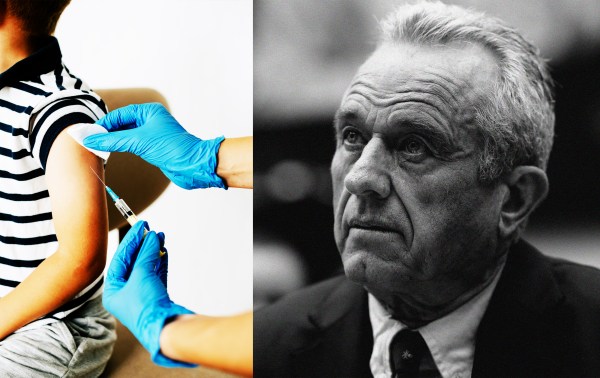
Cutting Through the Vaccine Noise
Toeing the Company Line

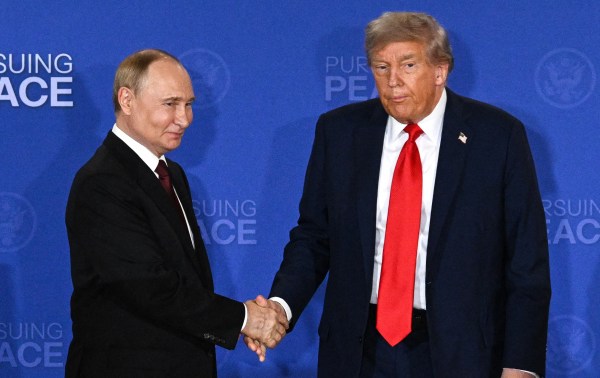

The Broken Windows of American Government

Federalizing D.C. | Live From the Alaska Federal Bar Association
Worth Your Time
- How much will Texas’ redistricting efforts help Republicans? Eli McKown-Dawson breaks down the numbers for Nate Silver’s Silver Bulletin, saying that picking up an additional five seats in the House of Representatives isn’t as certain as some Republicans might hope: “It’s helpful to think about the five Texas districts that are supposed to flip from blue to red thanks to the new map as two separate groups. First, the 9th, 32nd, and 35th Congressional Districts. Kamala Harris won all three districts in 2024 under the old congressional map. Back then, they were located in the heart of major Texas cities: Houston, Dallas, and Austin, respectively. Under the new map, parts of each district would be moved into more suburban areas that voted for Trump in 2024. The result? Trump would have won the new 9th, 32nd, and 35th Districts by an average of 14 points in 2024 and he would have won all three districts in 2020. In these three districts, GOP plans change the composition of these districts pretty dramatically. Not only have they shifted right, but they’ve gone from mostly urban to largely suburban. …. But the other two districts (the 28th and 34th) are less of a straightforward win for Republicans. TX-28 and TX-34 are located in South Texas on the border with Mexico and are both majority Hispanic. About 87 percent of the citizen voting age population (CVAP) in the new TX-28 is Hispanic. And the new TX-34 is 72 percent Hispanic. Both of these districts also already voted for Trump in 2024 even under the old map. The new map makes them redder: R+7.3 → R+10.4 for TX-28 and R+4.5 → R+10.1 for TX-34. But even under those lines, Joe Biden would have carried these districts in 2020 by 9.6 and 2.9 points, respectively.” To read more about the Texas redistricting fight, read last Thursday’s TMD.
- The definition of art can lead to a long and generally fruitless argument, but it has renewed pertinence in the era of AI-generated imagery. In a new Substack post, blogger and director of Effective Altruism DC, Andy Masley acknowledges that he can’t answer that question—or the question of whether you can say you even “made” AI-generated imagery—but presents a diverse series of 152 AI generated pictures, in a wide range of styles. “I think a lot of people still don’t know how good AI art’s gotten. I’m surprised that I haven’t seen more people playing around with it, or making the type of images I personally like,” he wrote. “If we have the same aesthetic taste, you’ve also probably thought a lot of popular AI art looks kind of ugly. If we enjoy the same vibes, I’m hoping this post will convince you that AI tools can help you make a lot of images you find interesting and fun.” The writers at TMD particularly like the album covers, “worlds made of weird textures,” and faux-photos of cafes and diners, but let us know which you like (or if you hate all of them) and what you think about AI imagery.
Presented Without Comment
Associated Press: Cambridge Dictionary Adds ‘Skibidi’ And ‘Tradwife’ Among 6,000 New Words
Also Presented Without Comment
Reuters: Watchmaker Swatch Apologises For ‘Slanted Eye’ Ad After Online Backlash In China
Also Also Presented Without Comment
Associated Press: Oklahoma Will Test Teachers From New York and California To Guard Against ‘Radical Leftist Ideology’
Let Us Know
Have any thoughts or questions about today’s newsletter? Drop us a note in the comments!





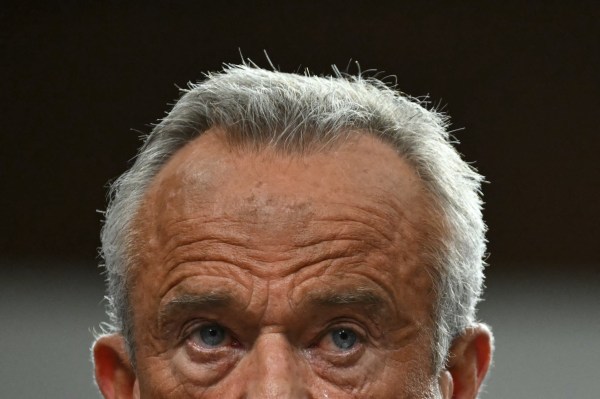
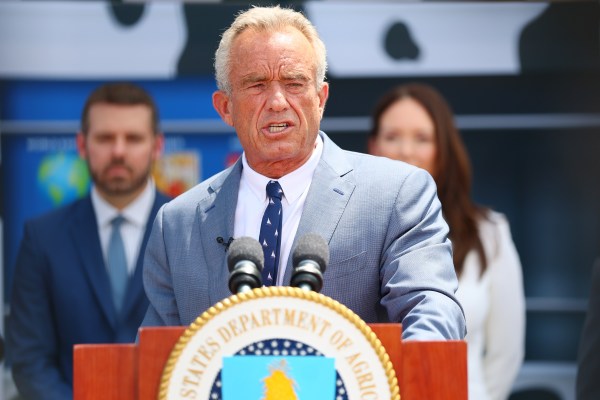

Please note that we at The Dispatch hold ourselves, our work, and our commenters to a higher standard than other places on the internet. We welcome comments that foster genuine debate or discussion—including comments critical of us or our work—but responses that include ad hominem attacks on fellow Dispatch members or are intended to stoke fear and anger may be moderated.
With your membership, you only have the ability to comment on The Morning Dispatch articles. Consider upgrading to join the conversation everywhere.